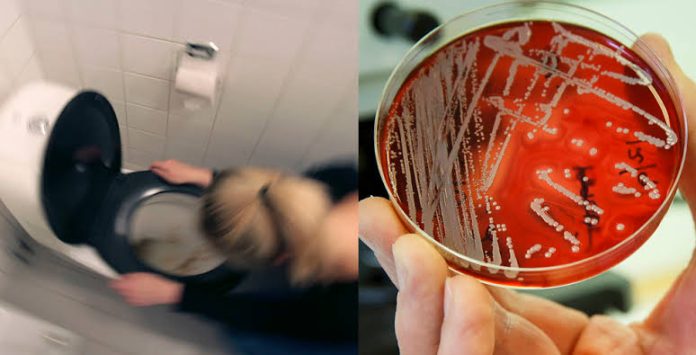The public are increasingly facing food-related “Russian roulette”, with hospital admissions for three common illnesses linked to food poisoning reaching their highest level in decades.
Admissions for salmonella infections reached 1,468 in England between April 2022 and March 2023, NHS data shows, a rate of three admissions for every 100,000 people, an all-time high.
E coli and campylobacter have also reached record highs in the past two years, with hospital admissions for the latter reaching more than 4,340, a rate of nine in 100,000 people in 2023 up from three in 100,000 in 2000.
The cause of the increase is disputed. Experts point to various factors: weakening regulatory focus, a weakening of standards in importation checks post-Brexit and local authority cuts, while the UK food standards authority puts it down to improved detection.
Whatever the reasons, the result is an “unprecedented rise in foodborne illness”.
Tim Lang, professor of food policy at City University, said it was no surprise and there would be more cases “until the British public wakes up and says it is not acceptable”. He added they should ask: “Why should I play Russian roulette with food?”
He put the increase in cases down to a “weakening of state attention and regulatory focus on food hygiene and safety”. He added that the situation had been “worsened by Brexit and local authority cuts, and a fragmentation of the system of food safety governance”.
Aside from the pandemic years, admissions for salmonella reached the lowest point 10 years ago, registering 834 annual admissions in 2013. Ten years later, NHS data shows that the number is 76% higher.
On average, about 30% of salmonella admissions are typhoidal salmonella, a type that is more likely to be travel related.
In 2023, people were warned to be careful when handling and cooking poultry products at home. More than 200 people became ill with a variant of salmonella linked to poultry and eggs imported from Poland. The Food Standards Agency (FSA) said it was investigating a recent rise in cases of salmonella food poisoning linked to poultry from Poland.
James Mottershead, NFU poultry board chair, said it was “deeply concerning” to hear that “poultry products produced outside the UK are being imported from countries where salmonella cases are on the rise”.
Mottershead added that British poultry farmers “are proud to produce to some of the world’s highest food standards and have to meet stringent food safety and environmental legislation”. He said: “Even though we will always be a trading nation in food, we should not be allowing imported products to enter our food system that may not be produced to the same standards.”
Lang said: “In the 1980s there was this moment of astonishing action and focus on food issues … There was mad cow disease and all sorts of big scandals … Basically, there was an effort to clean up and tighten up across Europe and Britain was part of that. In the last 15 years that has all been weakened.”
Lang also said local hygiene officers had had budget cuts, as well as the FSA. “We also left the European Union, whose structure has a huge focus on inspection and quality control,” he said.
Louise Hosking, executive director of environmental Health at Chartered Institute of Environmental Health (CIEH), said amid an “unprecedented rise in foodborne illness”, the “battle against such outbreaks begins with strengthening the capacity of local government environmental health teams”.
“However, while increased funding is vital, it alone is not the solution. We must also address the insufficient numbers entering the profession, which threatens the future pipeline and our ability to protect public health effectively,” she said.
It is not possible to separate admissions for salmonella caused by food from those caused by other methods, such as having contact with some animals or due to poor handwashing. However, some studies have shown that on average about 80% of salmonella cases are attributable to food, with some of them raising this to 90%.
A study published in 2020 by the FSA estimated that there were 2.4 million cases of foodborne disease in 2018 in the UK, with 16,400 hospital admissions. Among the most common infections are salmonella and campylobacter, an infection associated with eating or handling raw or undercooked meat and touching pets faeces. An estimated 67% of the cases are attributable to food.
The UK Health Security Agency put the rise in admissions down to advancements in the use of molecular diagnostics. Amy Douglas, its senior epidemiologist, said: “These gastrointestinal bacteria can be spread from person to person as well as from food, so anyone affected should wash their hands thoroughly after using the bathroom and avoid handling food or preparing for others where possible.”
Narriman Looch, head of foodborne disease control at the FSA, said: “While there are a number of reasons why we have seen an increase in hospital admissions for salmonella infections in recent years, this does not necessarily suggest an increased prevalence of salmonella in the community.”
Looch said consumers could reduce their risk of most forms of food poisoning at home by chilling, cleaning, cooking, and avoiding cross-contamination, and by practising good hygiene in general.
Tips to avoid food poisoning
Food poisoning can cause vomiting, a high temperature, diarrhoea and other symptoms, with some groups – including young children, pregnant women, adults aged 65 and older , and those with weakened immune systems – at greater risk of serious illness.
As the NHS says, such sickness is usually caused by bacteria such as campylobacter, salmonella or E coli – or by norovirus, often called the vomiting bug.
However, as the US Centers for Disease Control and Prevention says, there are a number of basic steps that can be taken to reduce the risk of ending up with food poisoning.
First it is crucial to clean both hands and work surfaces, including cutting boards, before touching food. It is also recommended to use separated cutting boards for preparing different types of food, such as meat or vegetables, and to take care to keep them separated in the fridge to avoid contamination.
Another important step is to make sure all fruit and veg has been thoroughly washed, and that all meat is fully cooked before eating. In the case of the latter that means ensuring the core of the meat reaches the correct temperature – for chicken, for example, that is 75C.
A food thermometer can be useful, but if one is not available NHS Inform says a useful rule is that the meat should be cooked until the juices run clear, it is steaming hot throughout, and it is not pink in the middle. In the case of barbecues, consider cooking meat in the oven before finishing it off on the outdoor grill.
Storing leftovers properly will also reduce the risk of food poisoning: the fridge should be between 0C and 5C, cooked food should be stored as soon as possible after cooling, and do not keep leftovers for more than two days.
Other tips include not refreezing defrosted raw meat and avoid eating food past its use by date.
(The Guardian)



